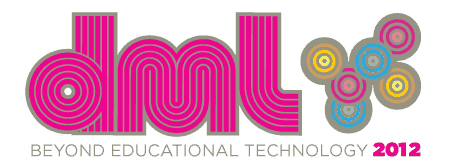IPE: Divide and Conquer: Examining and Confronting the Digital Divide
The “digital divide” creates an additional layer of challenge for students already facing inadequate services in their schools. But what does the digital divide look like? And what strategies are being employed to provide greater access to meaningful technologies? The intent of this panel is to bolster understandings of how students from low-income backgrounds use technology and explore what digital and game innovations are being developed for under-served students. Panelists hail from education, communications, interactive media and sociology programs and all are currently working with game and social media projects designed to provide high quality digital resources to low-income communities. The panelists will: 1) share quantitative and qualitative research findings that describe the digital divide and 2) discuss how researchers and game designers are addressing the digital divide through innovative programs. A moderator will facilitate a questions and answer segment with the aim of stimulating discussion among audience and panelists about what we know about the digital divide and how we are confronting it.
1:Digital snapshot of urban high school students
This paper describes digital profiles of students at three urban Los Angeles area schools. Data derive from focus groups, questionnaires, and observations. Study findings outline what types of technology students use at school and at home, ease and speed of Internet access, social networking behaviors, mobile device usage, influence of technology on interactions with peers and family members, and students’ willingness and ability to learn about college through technology.
2:Serious problem, seriously fun game
Through the Collegeology Games project, researchers and game designers from the University of Southern California have utilized new media forms, such as digital and tabletop games, to boost college aspirations and promote college-going strategies for underserved students. The focus of the presentation will be on identifying potential aspects of a problem space, and adapting educational games for different platforms and audiences.
3:After-school digital literacy, Part 1: Explore Locally, Excel Digitally
How one negotiates digital tools and norms impacts citizenship on and offline. USC Annenberg’s Participatory Learning and You! (PLAY!) initiative’s after-school program “Explore Locally, Excel Digitally” (ELED) used hardware, software, and team-building activities to investigate ethics, mapping, and their intersections. Students examined their own communities and the nature of their participation within these networks, looking at ELED, their friendship circles, schools, and neighborhood. Ethnographic fieldnotes, video footage, student-generated multimedia content, and survey measures demonstrated that this pedagogical framework supported a participatory learning culture and facilitated students’ development of self- and collective efficacy.
4:After-school digital literacy, Part 2: Play On! Workshops
Play On! Workshops are a series of after-school programs facilitated by USC Annenberg's PLAY! initiative. Workshops included: Laughter for a Change, focused on improvisational theater and comedy training ; AnimAction, focused on animation and digital ethics; and Departures Youth Voices, focused on multimedia exploration of community. While the subject matter and tools differed from workshop to workshop, each experience offered students opportunities to explore civic engagement through storytelling and work toward a more participatory approach to learning.



